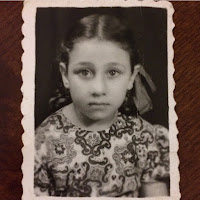Childhood, Growing up in Egypt, and Experience in Egypt
Karen Ibrahim
Intro to the Modern Middle East
Mohammed Ezzeldin
18 December 2016
Childhood and Growing Up in Egypt
Egypt is one of the most influential Arab countries in the Middle East including media, culture, and way of life. From its history to the pyramids and the pharaohs, leading onto its history from being part of the Ottoman Empire and British colonialism, it has brought up a prodigious amount of traditions that are still used till this day. Egypt is located in the northeastern part of Africa, bordering the countries of Libya and Sudan. The capital city is Cairo, which includes one of the biggest populations in Egypt and where most of Egypt’s population resides. Another prodigious city in Egypt is the city of Alexandria, which is closer to the Mediterranean sea. Each region of Egypt is slightly different from each other, in aspects such as recipes for dishes, accents in Arabic, and even attitudes. My mother, Iman Ibrahim, was from a city called El Fayoum, which is located a little more down south from Cairo. It is more village-like with less industrial factors like Cairo, and holds a much higher poverty rate. However, my grandfather, named Youssef Abdelsayed, was a wealthy businessman that sold farming machinery. Therefore, my mother grew up well off, most more than other children her age in the city.
My mother grew up with three brothers and one sister; her sister, however, got married when my mother was born, so she did not have an opportunity to actually grow up with her. In most families in Egypt, the boys in the families got more freedom to do any activities they wanted without parental guidance because they were viewed as more stronger than girls. When my mother was a child, she did have the freedom to play with her friends and play basketball, but she was usually told to stay home because her parents always feared her going out alone. Also, she was limited to the toys and things she could play with because her parents wanted to teacher to not be greedy or selfish. Her brothers, however, had more freedom to go out with their friends more, buy more things for themselves, and get jobs. When my mother became older, and graduated from college, she decided to become a preschool teacher, which was a typical job young women would pursue in Egypt. When she was a teacher, it was always her dream to go to the United States. In Egypt, America was viewed as one of the most desired countries to go to due to its prospering economy and freedom. My father, Samir Ibrahim, who was already an American citizen married her in 1997 and they both came to live in Staten Island, New York. Living in the United States was hard for my mother, because it was just completely different from Egypt. The language, culture, attitudes, and food in the United States was nothing like Egypt. It was hard for my mother to go around and read signs or talk to others because she only knew the native language, Arabic. It was also difficult for her to communicate with others because she did not know any English. Although everything was difficult to adjust for my mother, she loved America, because of the freedom she had. Though Egypt is a beautiful country, it did not have the same rights and opportunities that my mother witnessed.
 |
| In Alexandria, Egypt when I was 10 years old |
 |
| My mother, Iman Ibrahim, when she was 10 years old in Egypt |








Post a Comment